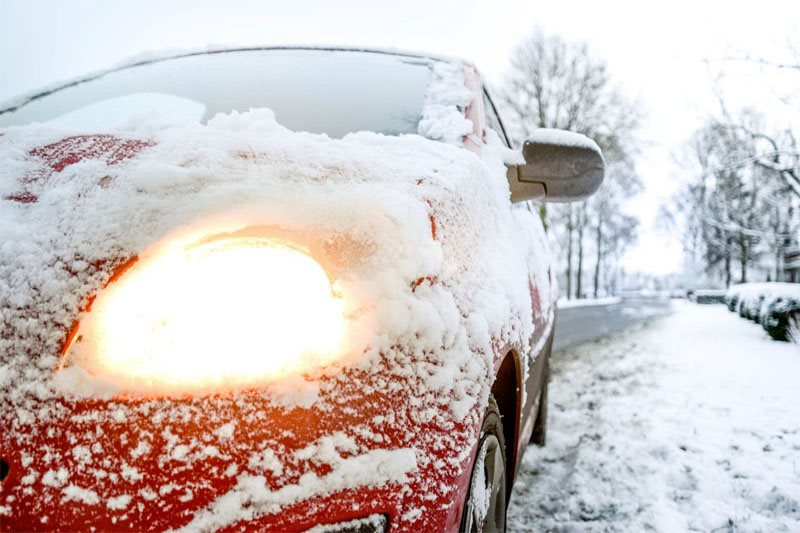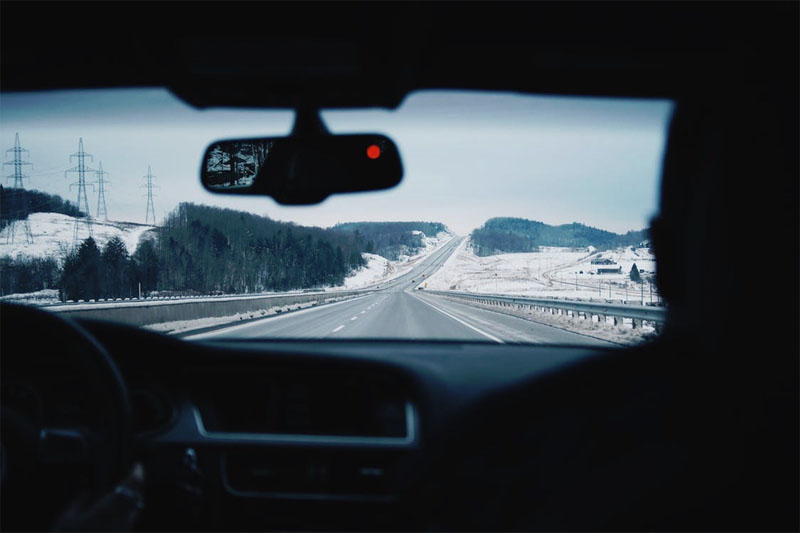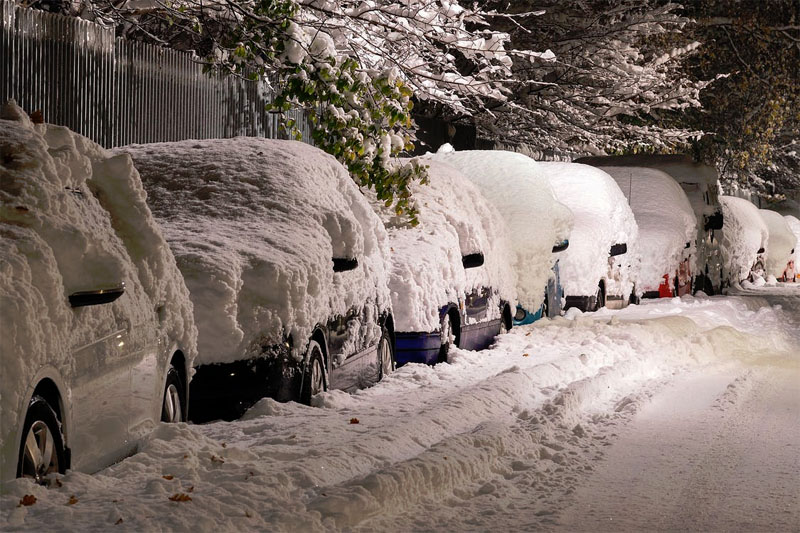Whilst there are few laws in the UK explicitly covering winter driving, there are a number of laws that you could fall foul of when driving in the winter. We’ve covered some of the most popular scenarios you might encounter when driving in winter and what laws might be applicable. These laws are in place with your safety in mind and that of other roads users (and pedestrians) so whilst you are risking a fine if not abiding by them, your safety and that of others should be the main reason to ensure you drive legally in winter.

Frequently Asked Questions
- Is it illegal to drive with snow on your car?
- Is it illegal to drive with a frozen windscreen?
- Is it illegal to drive with mist on your windscreen?
These questions are covered under the Highway Code:
Driving in Adverse Weather Conditions (226 to 237)
In particular, rule 229 which states;
Before you set off
- you MUST be able to see, so clear all snow and ice from all your windows
- you MUST ensure that lights are clean and number plates are clearly visible and legible
- make sure the mirrors are clear and the windows are demisted thoroughly
- remove all snow that might fall off into the path of other road users
The following Law(s) are applicable when driving in winter to comply with the highway code;
The Road Vehicles (Construction and Use) Regulations 1986, No. 1078, PART II, E - View to the Front, Regulation 30
(3) All glass or other transparent material fitted to a motor vehicle shall be maintained in such condition that it does not obscure the vision of the driver while the vehicle is being driven on a road.
In brief, it is your responsibility to ensure that all windows provide clear vision of the road ahead (or behind) and are free from frost / mist either inside or outside of the car.
The Road Vehicles Lighting Regulations 1989, No. 1796 PART III, Regulation 23
Maintenance of lamps, reflectors, rear markings and devices
In brief, as the driver of the car, you are required to ensure all lights and registration plates are clear of snow and ice and fully functioning. Whilst this is not specific to winter driving, the implications of faulty lights in adverse weather conditions is potentially far more dangerous. Number plates are also obstructed (snow / muck from road) much quicker and easier in winter so you should clean and clear them regularly.

Can I drive with snow on my car?
Technically, there is no law stating that you cannot drive with snow on your car, however snow on the windscreen is covered above as you are required to ensure a clear view out of the car. Snow on the roof however could land you in hot water and breaching the law regarding ‘driving without due care and attention’. Should the snow fall onto the windscreen and inhibit your view, or fall onto the road / pavement and endanger other road users and/or pedestrians, you could be held liable under the following law;
Road Traffic Act 1988 c. 52, Part I, Driving offences, Section 3 - Careless, and inconsiderate, driving.
If a person drives a mechanically propelled vehicle on a road or other public place without due care and attention, or without reasonable consideration for other persons using the road or place, he is guilty of an offence.

Can I run my car to clear the windows / warm it up?
There are a couple of issues here, not only from a legal perspective but also an insurance and environmental one. Whilst starting the car on a cold, icy morning to clear the windscreen of ice on the outside and mist on the inside whilst you enjoy a cup of tea in the warmth of home sounds like a great idea. But there are a few pitfalls you need to be aware of. If your car is parked on the road, it is illegal to leave the car with the engine running whilst you are not in attendance and there is a grey area around even leaving the car running on a private driveway, if it is accessible to the public you could be considered to be in breach of the law as determined by the highway code, rule 123 which states;
Applicable Laws;
The Road Vehicles (Construction and Use) Regulations 1986, No. 1078, PART IV, Section E, Regulation 98 & Part F, Regulation 107
You MUST NOT leave a parked vehicle unattended with the engine running or leave a vehicle engine running unnecessarily while that vehicle is stationary on a public road. Generally, if the vehicle is stationary and is likely to remain so for more than a couple of minutes, you should apply the parking brake and switch off the engine to reduce emissions and noise pollution. However it is permissible to leave the engine running if the vehicle is stationary in traffic or for diagnosing faults.
Of course, in the ever environmentally conscious world in which we now live, is it really justifiable to run your engine solely to clear ice from the windscreen? Whilst potentially convenient and comfortable to do so, some very simple measures such as putting a blanket or towel over the windscreen the night before will prevent ice forming in the first place, or using a scraper and a little elbow grease.
Then there is the issue of insurance and where you stand should your car be stolen whilst left unattended with the engine running. If the vehicle is left unattended and unlocked with the keys in the ignition you’ll most likely forfeit your ability to claim on your insurance should it be stolen. We’d also suggest that even if the car is locked with the engine running, you are likely to have a battle on your hands and it’s simply not worth it. Many modern cars have auto start functions where the car can be remotely started with all the doors remaining locked for this purpose, however convenient such features might appear, you’d be very wise to check with your insurers how it might affect a claim if your car was stolen whilst using this function.
What about a rental car?
The same applies, as the renter of the vehicle, you are responsible for ensuring it is used in accordance with the terms and conditions of the rental agreement and leaving the car unattended with the engine running is prohibited and as such, should the
rental car be stolen you would be liable for all costs.
Sources:
https://www.gov.uk/guidance/the-highway-code
http://www.legislation.gov.uk
Comments